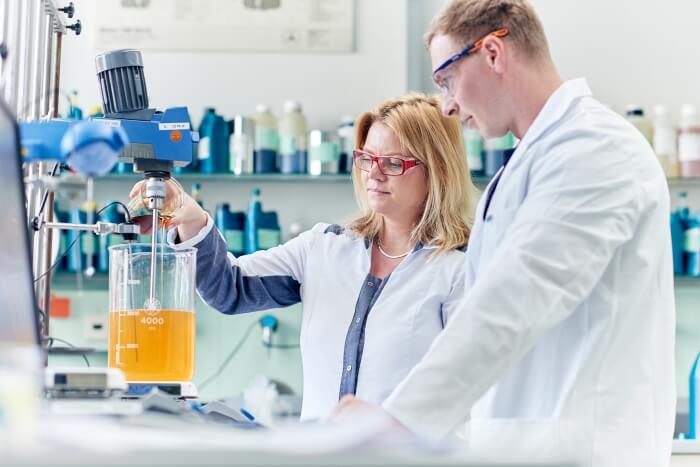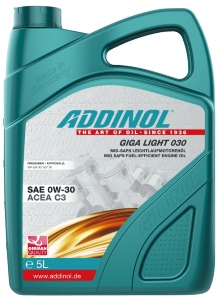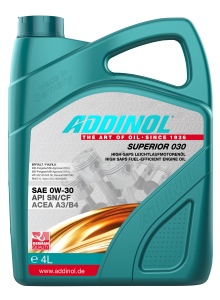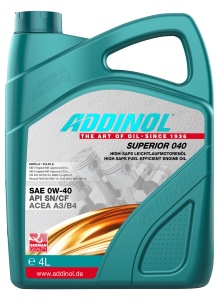


Polyalphaolefin
Polyalphaolefin (PAO) is a collective term for synthetic hydrocarbon oils that are obtained from ethylene by means of polymerisation. In this process, the ethylene is processed into alphaolefins, of which the C10 and C8/12 parts are converted into a mixture of different oligomers on catalysts. Fractional distillation separates the crude oil into fractions with the required viscosities. In this way, high-quality base oils with a viscosity index between 120 and 140 can be created.

ADDINOL Lubricants with PAOs
ADDINOL attaches great importance to quality and processes only the best additive packages as well as base oils. PAOs are also used for the production of our high-quality lubricants. Polyalphaolefins are required, among others, for our Eco Gear range or our food grade lubricants. However, they are also a component of typical engine oils. These include:
ADDINOL GIGA LIGHT 030
Specifications / Approvals:
ACEA C3
VW 504 00, VW 507 00
ADDINOL SUPERIOR 030
Specifications / Approvals:
ACEA A3/B4, API CF, API SN
ADDINOL SUPERIOR 040
Specifications / Approvals:
ACEA A3/B4, API CF, API SN
Contact



